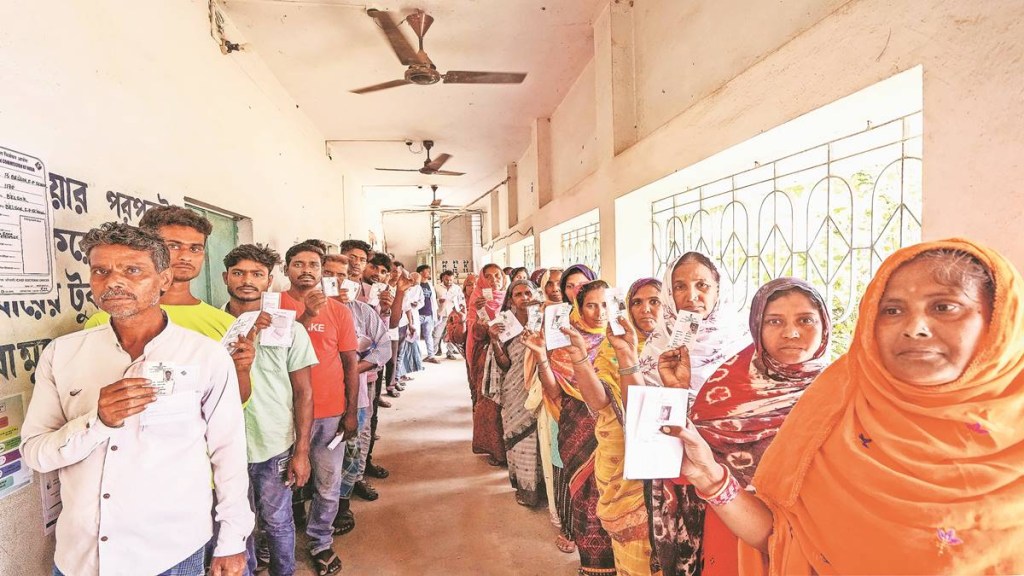Managing the elections in India is an arduous task and political parties have been reinventing novel modus operandi to reach out to the last voter. Party workers and leaders along with local influencers leave no stone unturned to shape public opinion in their favour. However, with technological advancements, competition among parties to control the narrative has become quite complicated and sophisticated. As the 2024 general elections are now concluded, here’s a look at various ways incorporated by political parties to professionally manage the elections:
Google and Meta ads
Google ads which include YouTube and Meta ads (Facebook and Instagram) are popular platforms for the political parties to leverage in all forms like image, text, and video. Having made the early effort on digital ads, the Bhartiya Janata Party (BJP) is the largest advertiser in India on Google and Meta ads, becoming the first political party in India to spend over `100 crore in political advertisements on Google and YouTube in April this year, since May 31, 2018 when the search giant made it transparent on Google Ads Transparency Centre. After that period, in the run-up to the elections including the voting phase which ended on June 1, the BJP remained the top advertiser with Rs 63 crore followed by Congress with Rs 27 crore, Biju Janata Dal with Rs 17 crore, YSR Congress with Rs 7 crore, and Telugu Desam Party Rs 4 crore. According to Meta ads Transparency Center data in India, the BJP spent over Rs 30 crore, the Congress over Rs 12 crore, and the Trinamool Congress (TMC) spent over Rs 2 crore among other parties from February 21, 2019 to June 1. In the last 90 days (ahead of the elections and during the voting phase), BJP continued to dominate and spent over Rs 19 crore. Congress and TMC also spent Rs 10 crore and over Rs 1 crore respectively. While TDP and AAP spent around Rs 75 lakh and around Rs 24 lakh respectively on Meta ads.
Political consultancies
Political consultancies professionally manage the activities of the party for image building and converting that to votes. With the success of Indian Political Action Committee (I-PAC) in advancing the BJP to form the government in 2014, political consultancies saw a meteoric rise. Consultancies in India deal with an exhaustive list of work which may include data analysis to 360-degree campaign design, focussing either on a candidate, or a single party or oscillating among multiple such clients. They also offer services such as digital marketing, on-ground surveys, sentiment monitoring, war room setups, booth level management, media management to name a few.
For instance, Jarvis Consulting, a data-driven consultancy, largely works with the BJP. Inclusive Minds, a campaign consultancy works for Congress. Parties tend to hire ‘in-house professionals’ to assist them with specific tasks. There are several cross-party consultancies for which “neutrality and avoiding conflict of interest” is pertinent. Ankit Lal, founder of Politique Advisors, says, “If you are part of a political organisation, you’ll always have allegiance to the party’s ideology, and then you cannot be a neutral and independent political consultant.” Since it’s a break from the traditional mode of canvassing by karyakartas or workers on the ground, consultancies said that parties initially thought they would replace the workers. However, Lal opined that they cannot be replaced by someone as a consultant whose primary motivation is money.
Political leaders also have ideas of their own and they want their execution for which they hire consultancies. For instance, another cross-party consultancy Political Sampark said that Congress’ ‘Ladki Hoon Lad Sakti Hoon’ slogan was given to them in UP and they created multiple campaigns to “spread the message” that included d oor-to-door visits, marathon programmes in major cities. The firm noted that working with parties has some advantages like clarity in leadership, an eager workforce, and easy decision-making. Cross-party consultancies mostly have non-disclosure agreements with clients ensuring that they don’t reveal them in the public domain because “they get work through personal references, connections, and lobbying”.
Advertising, influencers & marketing agencies
For the 2024 Lok Sabha polls, the BJP engaged advertising agencies McCann Worldgroup and Scarecrow M&C Saatchi among several contenders to manage its advertising needs, as per reports. Congress contracted advertising company DDB Mudra to lead its publicity campaign for the polls. Parties have worked with social media influencers to get their message across and control the narrative. Political parties like the BJP, Congress, and the AAP said that they provided monetary benefits to those influencers who wanted to work for money. Congress, however, clarified to FE it did not do so directly but through influencer marketing agencies.

